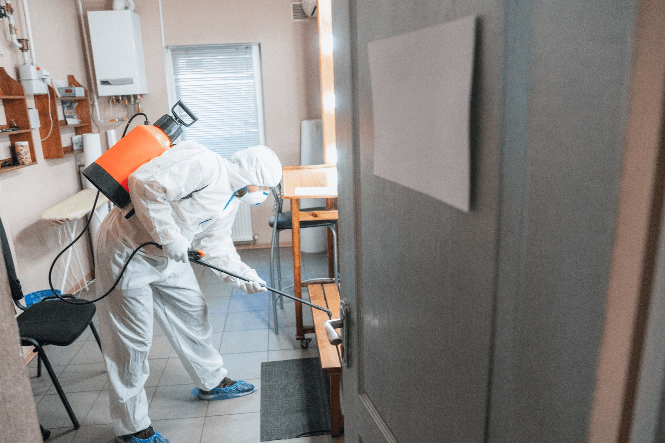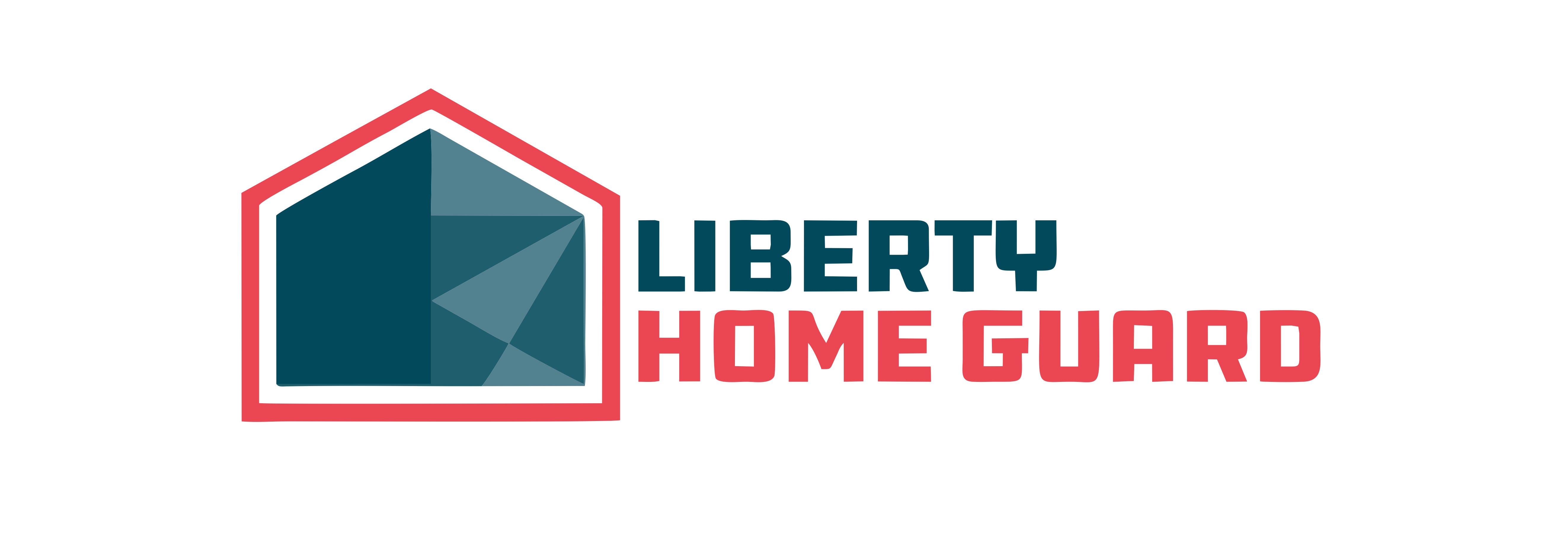10 Best Pest Control Companies In The US
Deals with:
Termites, Cockroaches, Mosquitoes, Bed bugs, Ants, Flies, Stinging pests, Rodents and others
Features
- Offers 30-day money-back guarantee
- Provides off-schedule service visits for total eradication
- Uses chemical treatments only when other options aren’t feasible
Eco-friendly treatment options: Eco-friendly treatment options: Available with IPM
Orkin is one of the largest pest control companies in the world with over 120 years of experience, and 1.7 million customers. To maintain the high quality of services, they operate a multi-million dollar training facility in Atlanta. Their inspections result in pest control treatment options tailored for your individual infestation problems.
View MoreServes in - Alabama, Arizona, Arkansas, California, Colorado, Connecticut, View More
Deals with:
Bed Bugs, Termites, Ticks, Rats and Mice, Spiders, Cockroaches, Ants, Scorpions, Silverfish, Millipedes and others
Features
- Guarantees against the return of pests
- Offers customized treatment plans
- Pest control plans transferable on moving
Eco-friendly treatment options: Eco-friendly treatment options: Available with Terminix ABC Pest Control
Terminix is the second-largest pest control company in the United States, with over 90 years of experience. They service 50,000 homes everyday. They emphasize localizing pest control services and also employ entomologists on staff. They install baits and perform chemical treatments as well.
View MoreServes in - Alabama, Arizona, Arkansas, California, Colorado, Connecticut, View More

Ehrlich Pest Control
Ehrlich Pest Control
$100 off on termite protection + $25 off on mosquito control + $50 off on Pest365 + $100 off on rodent exclusion + $25 off on tick control $100 off on tap insulation
Deals with:
Tick/Mite, Cockroach, Rodents, Wasps, Ants, Fleas, Spiders
Features
- Environmentally sensitive approach with bioremediation available
- Child & pet-friendly treatments
- Offers free pest inspections
Eco-friendly treatment options: Eco-friendly treatment options: Available with Green Service, IPM
Ehrlich Pest Control offers residential and commercial pest control and serves mainly the states in the Eastern US. They have become part of the Rentokil group of companies, and cover other states through that brand. Rentokil is one of the top names in commercial pest control.
View MoreServes in - Connecticut, Delaware, Florida, Georgia, Maine, Maryland, View More
Deals with:
Ants, Bed bugs, Cockroaches, Termites, Bees, Rodents, Stingers & Biters, and others
Features
- Safe pest treatment options
- Support to charitable endeavors by UN
- 24/7 support and Aptive Reservice Guarantee
Eco-friendly treatment options: Environment-friendly pest control services available
Aptive Environmental Services claims to be a conscientious company taking an eco-friendly approach towards reducing pest infestations. They offer a Four Seasons annual protection plan, with regular treatments to keep bugs at bay. They have received various accolades for their services, though they don’t cover termites or bed bugs, two of the most common bothersome critters.
View MoreServes in - Arizona, California, Colorado, Florida, Georgia, Idaho, View More
Deals with:
Mosquitoes, Ticks, Fleas, Chiggers, Earwigs, Ants, Spiders, Boxelder bugs, Centipedes, Cockroaches, Millipedes, Mud daubers, Paper wasps, Scorpions, Sow bugs
Features
- Specializes in lawn care, soil amendment, weed control, grub control
- Offers perimeter pest control
- Also has commercial pest services
Eco-friendly treatment options: Environment-friendly services available
Trugreen is more well-known for their lawn care treatments and soil services but they do offer pest control plans, especially targeted towards the exterior of the home. In contrast to other pest control companies, they have expertise in pest control for gardens and outdoors. Trugreen has been in business for over 45 years and claims to have served over 23 million customers.
View MoreServes in - Alabama, Arizona, Arkansas, California, Colorado, Connecticut, View More

Bell Environmental Services Pest Control
Bell Environmental Services Pest Control
10% off pest control products’ subscription
Deals with:
Bed bugs, Birds, Rodents, Cockroaches, Ants, Flies, Spiders and other pests
Features
- Environmentally conscious zero-pest guarantee
- Safe for furniture and electronics
- Technicians return for follow-ups
Eco-friendly treatment options: Environment-friendly services available
Bell Environmental Services, as the name suggests, is a green pest control company. They are known for their proprietary pest control approaches using trademarked sniffer dogs to detect bed bug infestations. They offer commercial pest control services as well, with disinfection, and protection being a part of the package.
View MoreServes in - Connecticut, New Jersey, New York, Pennsylvania

Insight Pest Solutions
Insight Pest Solutions
$45 off on termite monitoring + iPad raffle entry + $25 friend referral bonus
Deals with:
Spiders, Bed Bugs, Ants, Bees, Plant pests, Rodents, Flies, Pantry PestsTermites, Mosquitoes, Stink Bugs, Ticks, Fleas
Features
- Offers extended warranty on termite control up to 5 years
- Gives money-back and retreatment guarantee
- Localized pest control expertise
Eco-friendly treatment options: Environment-friendly services available
Insight Pest Solutions is a pest management company in business since 2010, with a significant presence in the east of the U.S. The company strives to build a strong rapport between the technician and the customer. For the treatment to be seamless and successful, the same technician will be sent to your home, as needed, until your problem is solved. Extensive training is given to the technicians in biology and pest behavior.
View MoreServes in - Colorado, Florida, Idaho, Indiana, Massachusetts, North Carolina, View More

Western Exterminators
Western Exterminators
$100 off on termite protection + $25 off on mosquito control + $50 off on Pest365 + $25 off on tick control
Deals with:
Ants, Bats, Bedbugs, Bees, Chipmunks, Cockroaches, Earwigs, Fleas, Flies, Gophers, Mice, Wood Borers, Stinging Insects, Wasps, Termites, Rodents, Spiders, Scorpions, Moths, Mosquitoes, Ticks
Features
- Part of a large pest control conglomerate
- Offers barrier treatment, heat treatments, fumigation etc.
- Carries out canine detection
Eco-friendly treatment options: Eco-friendly treatment options: Available with IPM
Western Exterminators have been in the pest control business for over a century, and is now part of the Rentokil Group. The company provides well-trained pest control professionals and also follows an integrated pest management system to minimize environmental impact. The product line includes some organic and natural-based pest control products, that are applied strategically to feeding and nesting areas, entry points in a comprehensive crack and crevices approach.
View MoreServes in - Arizona, California, Nevada

Massey Services
Massey Services
$100 off on termite protection + $50 off on pest control services
Deals with:
Termites, Fleas, Ticks, Mosquitoes, Cockroaches, Spiders, Rodents, Earwigs, Millipedes and others
Features
- Offers free inspection
- Makes customized plan based on comprehensive graph of the property
- Follows 24-hour response time between treatments
Eco-friendly treatment options: Eco-friendly treatment options: Environmentally responsible methods
Massey Services has been in business for over 35 years, offering pest control services, landscaping, and irrigation services. They have a large network of contractors and employees numbering about 2500 serving more than 700,000 customers. One of the environment-friendly choices, they have been awarded by the U.S. Environmental Protection Agency (EPA) and the Council for Sustainable Florida.
View MoreServes in - Florida, Georgia, Louisiana, North Carolina, Oklahoma, South Carolina, View More

Truly Nolen Pest Solutions
Truly Nolen Pest Solutions
$25 referral gift card + $50 off on Four Seasons Pest Control + $100 off termite control
Deals with:
Ants, Bed Bugs, Bees, Beetles, Birds, Boxelders, Caterpillars, Crickets, Earwigs, Fleas, Flies, Gnats, Grubs, Lice, Millipedes, Mosquitoes, Moths, Roaches, Rodents, Scorpions, Silverfish, Spiders, Termites, Ticks, Wasps, Weevils
Features
- Offers online quotes
- Gives 100% Money Back Guarantee
- Free extra services if pests remain
Eco-friendly treatment options: Environment-friendly services: Available with IPM
Truly Nolen is a leading pest control company rated A+ by BBB users (though they are not accredited by BBB). With over 80 years of experience, they offer pest protection from a variety of bugs. Besides pest treatments that are safe for your pets and the environment, Truly Nolen offerings extend to insulation services, and lawn care besides commercial pest control.
Serves in - Arizona, California, Florida, Georgia, Kentucky, Nebraska, View More
Comparing The Top 10 Companies At A Glance
How We Picked the Top Companies
Our research process begins with finding out the top players in the pest control segment. Once we see that they are registered and reputable, we follow a comprehensive process of studying the offerings from each company.
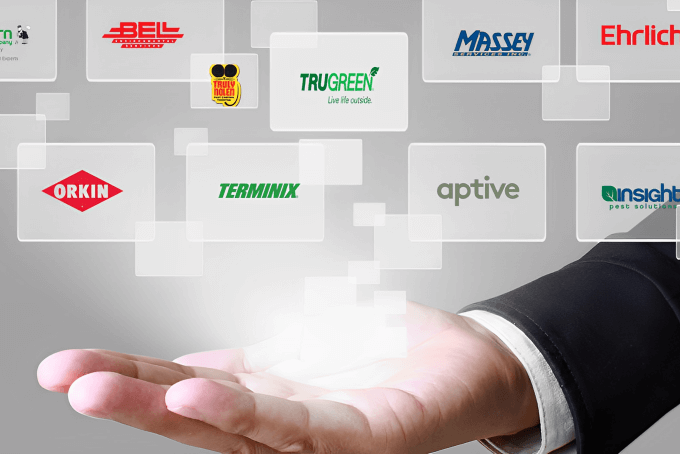
- We shortlisted the companies based on their popularity and user feedback from Google and Yelp reviews. We also looked at their BBB pages to check if the information was up-to-date.
- We also studied the pests covered in detail and checked whether the companies have eco-friendly treatment options that are safe for your family.
- Next, we scrutinized their pest treatment plans, and claims made carefully to understand what they offer to consumers since many pest control companies are obtuse about it. Naturally, companies that have been more forthcoming about the nature of treatments have ranked higher.
- After coming up with reviews, we get down to ranking the companies. The most extensive part of our ranking process is our studies and analyses of the user reviews gathered from numerous sources like BBB, Trustpilot, and Google Reviews.
- We have given higher ranks to companies that have more people rating them as convenient, fast, and hassle-free. We have taken into account the general reception towards these companies’ technicians.
Our reviews outline these factors for your convenience. We have included companies offering indoor and outdoor pest control.
How to Choose the Right Pest Control Company
The prime concern you have as a customer is that the pest control treatments should be effective. Many factors play into determining the company’s efficacy like

Location Of The Company : When it comes to generic pests that affect everyone in your country, a national pest controller can work out very well. Sometimes, however, you may prefer local experts if there are predisposing factors, affecting the infestation’s severity. You may also choose reputable local exterminators based on the recommendations of friends and neighbors.

Level Of Infestation : The severity of infestation also affects your company choice, with more extensive and stubborn infestations needing companies reputed for specific pests. Whether the company follows up also becomes important, especially for stubborn bugs like bed bugs, or when you desire lawn care.

Types Of Treatments : Most pest control companies provide a personalized treatment plan based on the nature of pest infestation marauding your home. A pest treatment plan includes a combination of these. Generally the types of treatments offered fall broadly under
- Physical methods : It involves restraining pests from entering the area or removing them manually, often without killing them. Traps, barriers, screens, heat treatments, dealing entry points, keeping food sources like trash bins covered, etc. include physical methods
- Chemical Methods : It involves the use of chemicals, ideally, those approved for human safety, which kill the pests, like pesticides, insecticides, poison, etc.
- Electronic Methods : A relatively recent innovation, these devices aim to prevent pest entry and also kill those that do get by. Ultrasonic pest repellants that emit high-frequency waves audible only to rodents, electric beams that fill flies, etc. are examples.
- Biological Methods : Organic gardeners prefer the biological methods of pest control where beneficial organisms are used to eliminate pest infestations. The methods include planting natural predators, fungi that produce chemicals, plants that release repellant odors, etc. When it comes to critter control, humane methods are followed.
- Integrated Pest Management : More pest control companies are offering integrated pest management approaches nowadays, addressing the demand for more environmentally sensitive and sustainable solutions that are also safe for people. It combines information about the pests’ life cycles, and their interaction with the environment to come up with economical and long-lasting results.
There are four steps that inform integrated pest management, which is not one single process but a series of pest management decisions, based on numerous evaluations:
- Defining thresholds for taking action against pests - setting the points at which an infestation may be said to threaten health
- Identifying the pests, and monitoring the infestation to determine the appropriate stage for intervention
- Preventing an infestation as the first line of defense, eliminating any conditions that attract the pests to the home
- If all else fails and the pests exceed the set threshold, then using means to eliminate the pests.The pest control professionals should ideally be explaining their prescribed treatment approach every step of the way.

Customer Service Quality And Expertise : Ultimately, pest control has to result in no more bugs plaguing your home. Talk to your friends, neighbors and read reviews from real customers. Pay attention to the details shared, and take away talking points for your inspection.
How Much Does Pest Control Cost?

Pest control prices tend to be personalized according to the bug type, the extent of the infestation, and home size. It could also vary with the payment cycle, with monthly plans costing less. Single bug treatment plans are generally customized and most companies offer quotes after inspection.
One-time treatment plans start from $250 for a 2000 sq ft home, and may go up as the house size increases. Periodic pest control plans start from $46 a month. A severe infestation could cost upto $750 to eradicate. Generally, the more bugs there are, the greater the pricing.

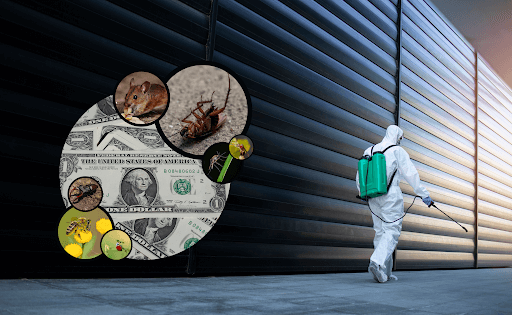
Are Pest Control Companies Worth The Money?
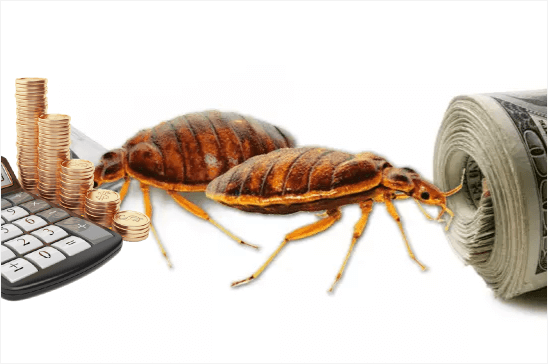
Especially harmful pests like termites, scorpions, poisonous spiders, rodents, etc. can cause untold damage if they are not stopped at the earliest opportunity. A pest control company specializes in prevention and intervention before its too late. They can help identify aspects of removal and management you may not know about.
Frequently Asked Questions (FAQs)
Here are some of the commonly asked questions:
How Often Should I Get Pest Control Services?
The frequency depends on how invasive the pest infestation is. Usually, quarterly treatments or once in 2-3 months will be enough to keep the critters from returning. If the infestation is severe, as in the case of bed bugs, the exterminators may return once a week initially and later, follow-up treatments may happen once in 2-4 months.
Is Pest Control From Companies Safe For Me?
As more pest control companies embrace IPM and eco-friendly options, numerous safe pest control interventions are available for customers. Some companies like Bell Environmental Services Pest Control offer primarily organic pest eradication solutions.
Which Company Is Best For Termite Treatment?
Most pest control companies offer comprehensive termite control plans. Terminix is among the companies with a well-articulated termite control plan and offers the same.
What's The Difference Between Pest Control And Exterminator?
Exterminators focus more on killing off the pests and use chemicals for fumigation, traps, and other methods. Pest control specialists don’t only think about extermination but also about preventing the infestation.
Will The Pest Infestation Return After The Treatments?
Pest control professionals strive to keep the pests from returning by offering follow-up treatments after the expiry of the core plan. If any conditions exist that make your home attractive to the pests, the infestation may return.
Who Regulates Pest Control Companies?
Pest control companies are generally under the ambit of state agriculture departments. The pesticides and other chemicals come under the purview of the Environmental Protection Agency (EPA).
What Is The Most Effective Pest Control Method?
Chemical methods of pest control like insecticides, pesticides, poisons, etc. are the most effective in getting rid of bugs and critters completely.
How Long Does It Take For Pest Control To Work?
Depending on the type of treatment applied, pest control could start working instantly. Chemicals kill insects and rodents right away. However, most approaches for the prevention of new infestations take a few days to show results.
What Is Eco-Friendly Pest Management?
Eco-friendly pest management is a type of integrated pest management approach that aims to minimize damage to the environment and maintain ecological balance by recognizing the role of each organism while also maintaining the quality of human life. Organic methods and biological approaches are given higher weightage in eco-friendly pest management.
Is Pest Control Required For New Homes?
Pest control services are a good idea for new homes. The home construction process gives many opportunities for critters to enter and establish themselves. A new home may also have many crevices and openings that enable pest entry. Pest control professionals can identify such entry points and point out vulnerabilities in the home. They also give you personalized tips to keep your home pest-free for a long time and check for any hidden nests.
Is Pest Control Better Than Doing It Yourself?
If you see just one or two bugs once in a while, you can effectively eliminate them yourself. Low-level infestations can be easy to manage if you can successfully identify the reasons for the entry of pests and find the right products. If you see the pests persist, it is better to call in professionals.
How Long Does Exterminator Spray Last?
That depends entirely on what the exterminators have sprayed. Termite solutions can last up to 5 years, while cockroach sprays only work for a few weeks. Fumigation, on the other hand, has longer-lasting effects. Generally, the treatments should be repeated every few months.
